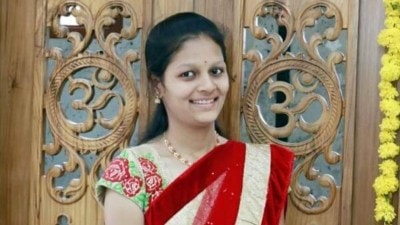- India
- International
What do ordinary Indians remember of their last normal day before COVID-19?
A bookseller and a tennis player, a doctor and a child, among others, recall the shape of life before coronavirus
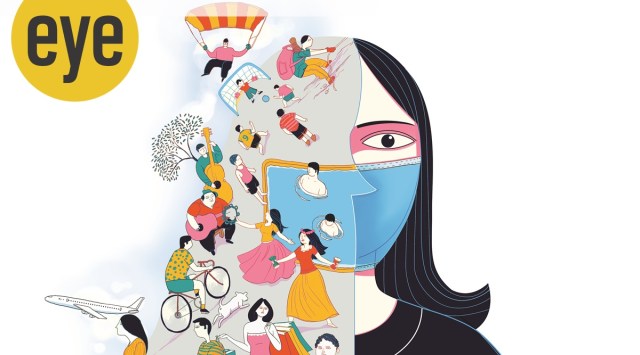 Life before coronavirus. (Illustration: Suvajit Dey)
Life before coronavirus. (Illustration: Suvajit Dey)‘No one smells the books now’
Srimanta Ghosh (Vicky), 45
Pavement bookseller, Mumbai
Benita Fernando
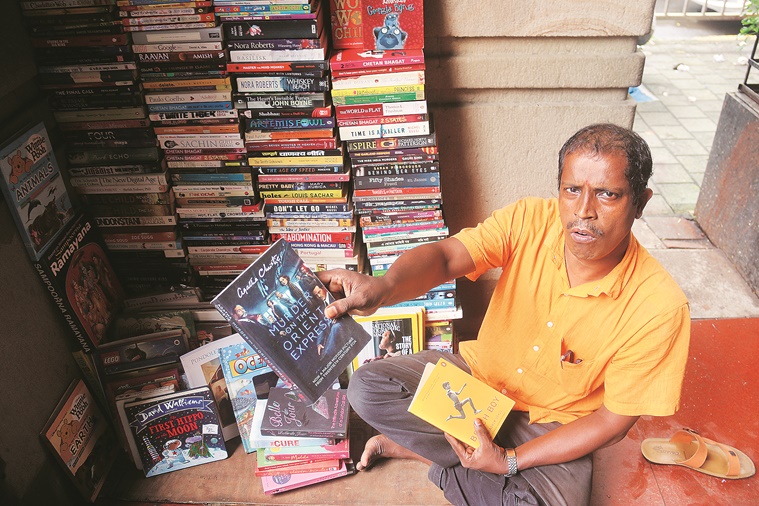 Visitors to Vicky’s stall are fewer and he tries to deliver books home
Visitors to Vicky’s stall are fewer and he tries to deliver books home
Mumbai’s book lovers know Srimanta Ghosh and his pavement bookstall well. The 45-year-old bookseller, known to his friends and customers as Vicky, was often sought out for back issues of coveted magazines and art catalogues. For 25 years, Vicky has arranged copies of The New Yorker, Sight & Sound, Harvard Business Review from junk dealers and publishing houses — and sold them at heavily discounted rates. On the evening of March 17, civic corporation officials and police came by Fort’s roadside bookstalls, asking them to shut shop early. That day, Vicky had walked to work from his house near Colaba fish market, arranged his wares in towering stacks, and got ready for the day’s business, planning to stay open till 10 pm.
It seemed like any other day. But customers seemed restless. A few warned him that it was unsafe for him to be out on the roads without a mask. Friends were discussing China and something called “corona”. Gravely, Vicky says, “When the police arrived, we thought we would have to shut our shops for a day or two. But I got the feeling that something was going to change.”
Most of his bookseller friends haven’t returned to the footpath near Flora Fountain. Successive lockdowns have robbed them of their business, forcing most to leave Mumbai, says Vicky. He, too, has tickets back home to Kolkata, the city he left in 1991, but he wants to stay on so that his children can continue their education. He says, “I have to pay rent and school fees. If I had known this would continue for six months, I would have arranged for money on March 17. At least, our khaana paani would have been taken care of.”
As of early September, Vicky has brought back a leaner version of his bookstall. Everyone is afraid to hold books now, he observes. Customers wear gloves, sanitisers envelop glossy pages. That’s fine, he says. “But earlier people would smell a book. Whether you read it or not was secondary. The book’s khushboo (scent) is what was most important. Now, they look at my books from afar.”
‘I wish I had saved more money’
Nitin Singh, 37
Tour guide, Agra
Divya A

The pandemic struck a few weeks after the biggest assignment of his life. Nitin Singh, 37, had been chosen to take the visiting US President Donald Trump and First Lady Melania, on a tour of the Taj Mahal on February 24. As the Trumps wrapped up their visit and left Agra, TV crews made a beeline to interview Singh.
A licensed tourist guide in Agra since 2007, Singh has taken many diginitaries around Taj and the Agra Fort. “I have worked in the past with US Embassy officials,” he says. The White House team visiting ahead of Trump’s visit interviewed him, among several others, and selected him for the job. Even on the day the monuments were closed to tourists because of the fear of the coronavirus, Singh says he had a guest from the US to see the Taj Mahal. “Since lockdown hadn’t been announced yet, I took her to a point across the Yamuna from where she could catch a good glimpse of the Taj. We stayed there for an hour and I told her the entire story of the monument,” Singh recalls. Since that day, he hasn’t been able to reel out his spiel on the monument to anyone.
Singh has spent the six months of lockdown learning the guitar, meeting a few friends and spending time with his parents and two children. He had not imagined the pandemic would last this long and fears its effect on his earnings will be severe. “This slump won’t get over for six months even if the Taj opens tomorrow,” he says.
But he doesn’t want to change anything about his life or his profession. “I am very happy with what I do. COVID-19 is an act of god. No one can help it. Taking people around and telling them about our history is the only thing I can do — and I want to do,” he says. His only regret: “I wish I had saved more money.”
‘I am angry at COVID-19’
Aaratrika Ghosh, 9
Student, Bengaluru
Paromita Chakrabarti
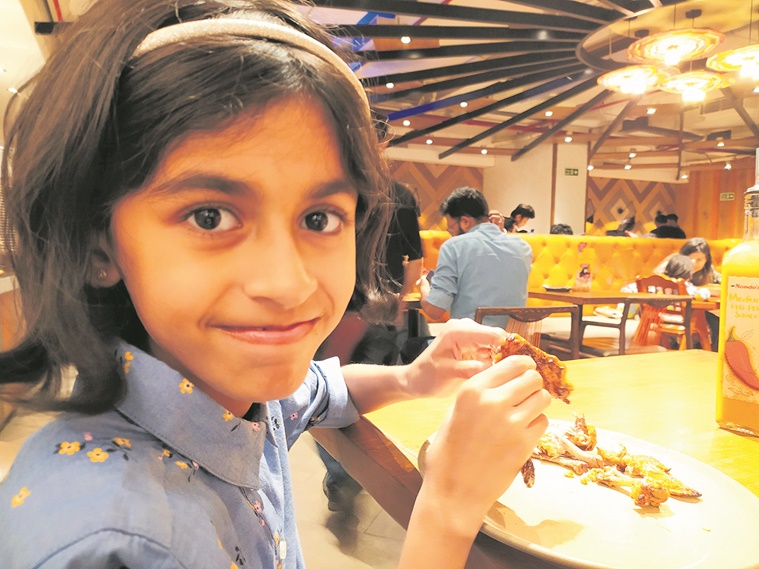 Aaratrika Ghosh when she last ate out in March
Aaratrika Ghosh when she last ate out in March
She was in the middle of her final examinations when Aaratrika Ghosh sensed that things were not hunky-dory. Even if she could shut out the relentless discussions about an unknown virus that was taking the world hostage, there was no way of avoiding it on the school notice board. “Pandemic means something that changes people’s lives. It’s big and caused by a virus. I learnt about it in the notice in school – when exams were halted,” says the nine-year-old, who lives in Bengaluru’s JP Nagar with her parents.
On March 9, the last day she’d gone to school, Ghosh had had her spelling test. It had gone off swimmingly well but she never got to know how she’d fared. The next day, a Tuesday, schools and academic institutes were shut down in the state. But that Monday afternoon, when she had returned from school it was business as usual. She’d rested and revised for the test the next day, instead of going out to play with her friends in their apartment complex. Looking back, she wishes she had done things differently. “I would have gone down to play; I wouldn’t have studied that day; I would have said bye bye to my school friends and gone out to see a movie,” she says.
In the six months since, topping her list of things that she has missed the most are her school friends, visits to her grandparents in Kolkata, and — talking. “I am angry with COVID-19 because I cannot do the things I love. I cry and lie on the bed when I am angry or sad,” she says.
She has found some redeeming features in the new normal, though. There’s more time for her hobbies, especially reading, more time for screens and less writing to do because examinations have moved online now. “Baba and Mamma being around is okay, but I would have loved it more if they played with me,” she says. She has formed WhatsApp groups with her friends, and, once in a while, there are group video calls “away from our spying eyes and ears,” says her father, Sourav Ghosh, 43, a software consultant. “Device time has increased, not because she’s fond of it, but how much can one read, when we, working parents, are not able to spend time with her during the day? (On the whole) she has adjusted to the new normal without question most of the time, I guess because they are aware of what this pandemic means, what its implications are and why we are doing what we are doing,” he says.
What would she do when she returns to her old life? A vacation, maybe to Goa, visits to her grandparents and back to school and her friends. “I will simply go out a lot more,” Ghosh says.
‘Pandemic is a bad word, I don’t want to learn it’
Aahir Chatterjee, 8,
Student, Mumbai
Paromita Chakrabarti
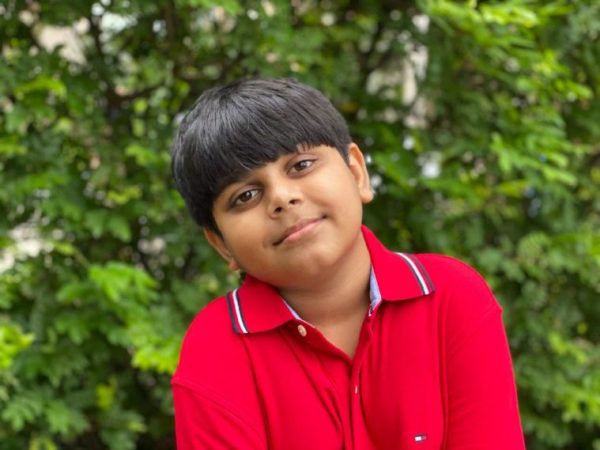 Aahir Chatterjee
Aahir Chatterjee
The last memory of normal life that Mumbai-based Aahir Chatterjee has is of the Holi get-together at his cousin’s place on March 10, a day so etched in colour and camaraderie in his mind that he wouldn’t change a thing about it. His spring break was imminent, so when the lockdown began, it simply meant more time with his toys, more time to fashion spaceships out of cardboard or play with his Beyblades. “I love doing craft, and, during the lockdown, I made lots of things. It’s good because I get more time to do whatever I like,” says the eight-year-old.
The pandemic is not a topic of conversation that Chatterjee wants to dwell on. “I don’t know what it means. I haven’t heard of it. But I feel it must mean panic. It’s a bad word, I don’t want to learn it,” he says. His Goregaon home with his toys, online classes and more-than-ever-before access to television is his safe haven, one that he has been loath to leave even for an occasional drive around the city after the lockdown lifted. The only time Chatterjee speaks of the lockdown is to concede how dreadfully he missed his Appa — his grandmother — and his father, both of whom are based in a different city, when the travel restrictions were in place. The yawning chasm on weekends, where his football lessons used to be, remains another sore spot. For every other annoyance, he has found an antidote, “I imagine cartoons in my head,” he says.
When this is over, though, Chatterjee knows exactly how he wants to return to his old life — “I want to go to a shopping mall and play with my friends during break in school,” he says.
‘I learnt to restart my life’
Sandhya Kunjur, 63
Retired businesswoman, Bengaluru
Amrita Dutta
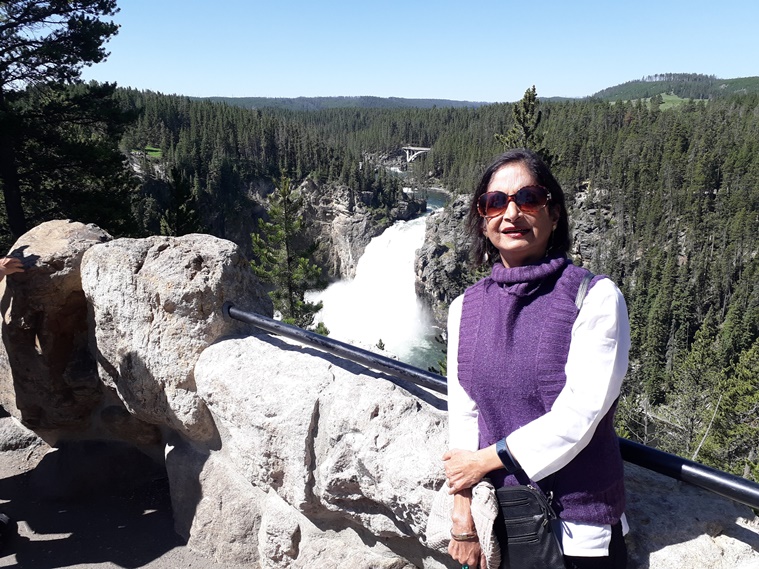 Sandhya Kunjur
Sandhya Kunjur
On that plain-vanilla day, six months ago, Sandhya Kunjur left her home to attend her dance class. It was a class for seniors like her, who were not expected to come with a partner to learn salsa or ballroom dancing, where the teacher could slow down if the students so wanted. The murmurs of an imminent closure of the city were all around them, but it didn’t quite sink in. “In fact, we we were planning to have a class in one of the students’ home, where it might be safer. But soon, we realised that that was not possible. March 17 was our last class. Since then, I have been home,” says the Kunjur.
A single woman in her sixties, Kunjur moved to Bengaluru a decade ago after a hectic professional life in Mumbai to be close to her family. “But my Bombay pace of life never flagged. I would go out almost every day. I was a part of several groups, and would be attending some event or the other — whether it was a talk on environment, or on gourmet cooking,” she says. Once a month, she would meet a group of friends at a club or a restaurant near MG Road, where she lives.
The lockdown forced her to slow down. Confined to her home, without domestic help, “it meant restarting my life and learning to run my home — cooking and cleaning and sweeping and swabbing. All my schedules were going haywire. I was having a bath at 12.30 pm, which is unthinkable for me,” she says. Someone who was used to utmost independence, she had to rely on volunteers to help her buy groceries and vegetables. Though she was used to living alone, evenings brought a pang of loneliness.
Kunjur learnt to outrun the clock but there was also the challenge of “filling up the calendar with activity”. Enter, the internet and groups for senior citizens such as the city-based Silver Talkies. “I knew how to use WhatsApp and Skype before the pandemic. But I have discovered that one can do almost everything over the internet,” she says. From yoga to painting class to financial management lessons, Kunjur has taken to Zoom calls like a fish to water. “I have kept myself occupied and learnt to calm down. It has kept me alert. Nothing has anchored me more than being able to learn new things,” she says.
Even so, what she misses most are people. “The hug that you get from a friend when you meet them, it doesn’t compare to anything,” she says. Some friends in her building come by to check on her, but they linger near the door and leave. An avid theatre-goer, she does not consider binge-watching Netflix a close substitute. Once this is over, she says, life will not be the same. “I think we will all be cautious and meet people in small groups for a long time. But I am waiting to call over my friends to my home. I am waiting for the theatres to open. And I am waiting to start travelling again,” she says.
‘Sunday brunches are what I miss’
Harish Chhimwal, 37
Bartender
Pooja Pillai
When Harish Chhimwal left Delhi for his hometown, Nainital, on March 15, he had expected to be back in a week’s time, once again shaking up cocktails for guests, as they milled around the bar at Olive Bar and Kitchen in Mehrauli. “Business had been slow for a few days before I left because news of this virus was coming in. At the restaurant, we were discussing how we could start taking precautions. I thought I would take a week off since we had been getting fewer guests in those last days, but I hardly thought that I’d be stranded in my hometown for nearly six months,” says the 37-year-old.
The previous Sunday had been as normal as any other Sunday, which is to say that the restaurant had been busy. It began with brunch, with guests heaping their dishes at the buffet tables and milling around and chatting, their voices raised over the music that issued from the speakers. Chhimwal and his team of four other bartenders were kept busy in Serai, the cocktail bar at the restaurant, making and serving drinks almost continuously. “Sundays always had such a buzz to them, especially at brunch. It’s not a boring, seated meal – the guests are always walking around, talking. And during those last days, the weather had been great. In January and February, and even in early March we always have a huge rush for brunch, because the weather is so good and people love to be seated outdoors,” he says.
It was on March 10 that the dip in the number of guests became obvious. “We started getting calls from guests, asking if we were still open, whether it was safe to come,” he says.
Looking back now, he’s glad he decided to go home in March. “At least I got to spend a few months with my family. And it is much safer in smaller towns and villages, than it is in big cities,” he says. He’s been back at work since the Delhi government allowed alcohol to be served at tables in restaurants. The number of guests coming in is going up slowly, but steadily. It will be a while before the much-loved Sunday brunch is back, though. “We don’t know how to execute it, while sticking to the social distancing measures.”
‘Now Mumbai is off and Navi Mumbai is on’
Gopal MS, 48
Photographer, Mumbai
Benita Fernando
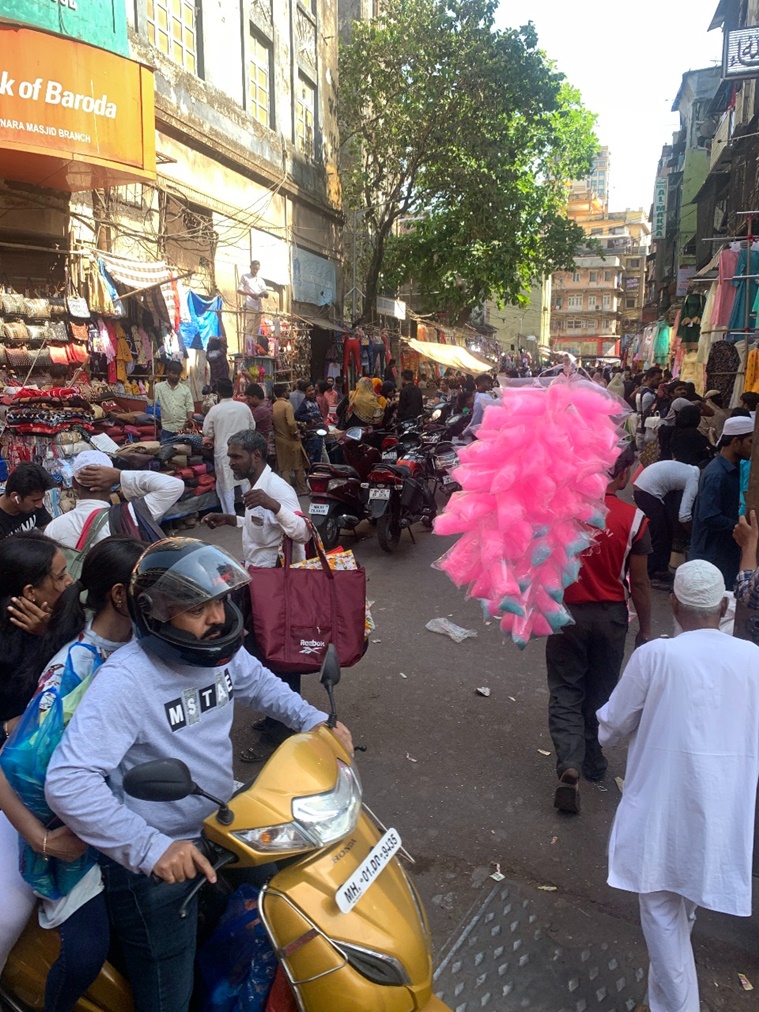 Gopal MS shares a photo from his last trip to South Mumbai before the lockdown in March
Gopal MS shares a photo from his last trip to South Mumbai before the lockdown in March
During the first lockdown in late March, his friends joked that advertising professional Gopal MS’s “name had come true”. Gopal is the photographer behind the hugely popular photoblog, Mumbai Paused. Finally, Mumbai has been paused, his friends texted.
For a decade, Gopal has served as one of Mumbai’s chief chroniclers, documenting its everyday moments with his phone camera. Mumbai Paused slows down the city and offers a slice of its life to an audience that’s too busy to notice otherwise. To do so, he has walked the length and breadth of Mumbai, gathering vignettes from a fleeting city—children turning roadside objects into playthings; a coconut seller or a fisherwoman; the clotheslines of the poor and the homeless are just part of his elaborate visual diary.
“Now Mumbai is off and Navi Mumbai is on,” says Gopal. A Vashi resident, the photographer has been confined to his home and neighbourhood since March 17, the last time he took a train back home from his workplace in Parel. Cut off from train access to the city, Gopal is now limited to a certain geography. He says, “I used to shoot Mumbai because I spent most of my time at work. Navi Mumbai is a place that I never really explored before as it didn’t seem as interesting as Mumbai.”
Recalling the events of March 17, Gopal says, “Judging from the news, it looked like our offices would shut down. That didn’t seem like a problem, as all I needed was my laptop. But I did worry what my shooting routine would be like.” Even on that day, he aimed to get a sense of things. At nearby Tata Memorial Hospital, where it’s not unusual to see cancer patients wear facemasks, Gopal noticed that visitors had been restricted and restless crowds had gathered at the gates. At Cotton Green, a chai stall had the words “Go Corona” penned on ply like a desperate talisman.
Gopal’s last “normal” day was March 14, just after WHO’s ominous pandemic announcement. On weekends, it had been his routine to shoot parts of the city away from his workplace. That Saturday, he had taken the train and landed up at Mumbai Bagh, the site of peaceful protests against the CAA and NRC at Nagpada. “People were winding up the protest and the lane was relatively empty,” Gopal recollects. Lunch was seekh kebabs and mutton curry at the nearby Sarvi, once the preferred hangout of writer Saadat Hasan Manto. Then a busride to CST through Pydhonie’s ribboning streets. It was a day spent absorbing Mumbai, where histories and futures collide easily.
Those days of gallivanting have come to an abrupt halt. These days, Gopal cycles around Navi Mumbai’s roomy roads and is better acquainted with its mangrove forests. The pandemic has also forced Gopal to revisit his stock of photographs, accumulated over the years. It’s a necessary pause, as he notices things in his images that he has missed out before. “I wish I had started doing this earlier, as soon as the lockdown began, rather than worrying about how things would pan out.”
‘This is temporary’
Sara Capela, 33
Makeup artist, Mumbai
Ektaa Malik
For Sara Capela, the day brought an unexpected whiff of home. She was shooting a TV commercial which featured many Brazilian, Portuguese and Indian models. Capela, a makeup artist from Portugal who has been living in Mumbai for 14 years, hearing her mother tongue remains a happy memory. “It was quite a fun shoot and I was able to speak Portuguese. Even though it was a 14-hour long day, we ended the day with dancing. The Brazilian and Portuguese models chatted with me about life back home, and how different it is here in India,” says Capela, 33.
This was the middle of March, and Mumbai had less than 50 cases of COVID-19 infections. Capela, who has two assistants, had started wearing masks to work. “We didn’t know what was going to happen. I had some shoots lined up, including an international project. But the lockdown ended those projects,” adds Capela.
She decided to weather the storm and spent the lockdown at her Khar residence, bingewatching web shows. The thought of going back to Portugal never crossed her mind. “I decided that this is a temporary setback. Slowly things started coming up. I did a wedding makeup, and then a shoot in July. Now there is a steady stream of work,” she informs.
While earlier she would only be worried about being on time for a shoot, now she is worried about other things. “We wear PPE kits, gloves and masks. I can’t apply makeup with a face shield, as things fog up. I always carry an alcohol-heavy sanitiser and an ozone sterilising chamber. I have already undergone four COVID-19 tests as some production houses insist on a negative test. I guess this is the new normal for me, and my industry.”
Apr 19: Latest News
- 01
- 02
- 03
- 04
- 05











